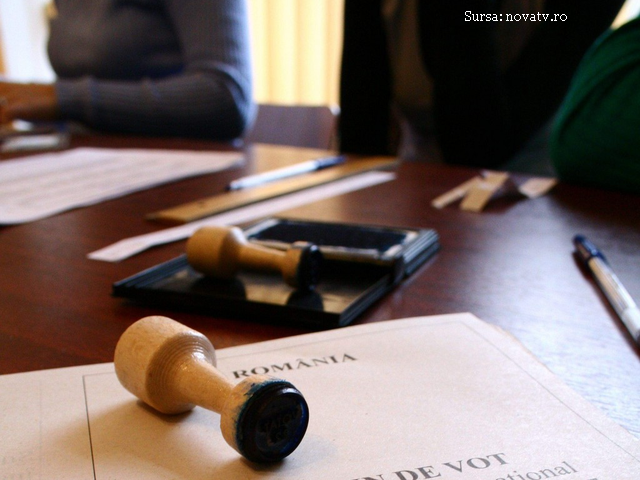Romania has a new election law
Under Romanias new election law, as of 2016, Romanias Parliament will have 134 senators and 308 deputies, as well as 18 MPs representing the countrys ethnic minorities other than the Hungarian minority, and 6 MPs representing ethnic Romanian communitie

Ştefan Stoica, 25.06.2015, 15:08
The proportional representation system will again be used, after
being replaced in 2008 with the uninominal voting system.
Over-sized, inefficient and far from properly representing voters
this is how Parliament is perceived by public opinion in Romania. The
inadequate, sometimes even abusive interpretation of the principle of
parliamentary immunity has also largely contributed to this negative image.
Something had to change, so the new law will replace the uninominal voting
system with proportional representation.
Without guaranteeing an improvement in the quality of Parliament’s
members, the new system will at least result in a reduction in the number of
MPs to 466 from 588. Fewer senators and deputies, a reintroduction of the
proportional representation system and keeping the 5% minimum threshold are the
main provisions of the new election law, a bill supported by all parliamentary
groups. The Social Democrat MP Gabriela Podasca argues that proportional
representation, which will be used in the 2016 elections, is the most
representative, simple and fair election system:
Gabriela Podasca: The number of seats you get in Parliament now
depends on the number of votes you get, provided you reach the minimum threshold.
We will now be able for the first time to gather exact data as to the number of
Romanian citizens living abroad and we’ll know how many polling stations we
need to set up.
The number of MPs to represent Romanian citizens living abroad,
whose upper limit is 6, has in fact been the major area of disagreement between
the leftist majority and the Liberal opposition. The Liberal MP Victor Paul
Dobre:
Victor Paul Dobre: We believe the number of seats allocated to
the diaspora is insufficient to represent the people living and working in
various countries in the world, in particular the European Union.
The vote of the Romanians living abroad has entered public agenda in
the aftermath of last autumn’s presidential elections. The bad management of
the voting process abroad, when many people had to wait in never-ending queues,
has generated massive public discontent and possibly even cost the Social
Democrat Prime Minister Victor Ponta the presidential race. Under the new
election law, the Permanent Electoral Authority will be responsible for holding
the parliamentary elections and a computer system will be introduced to monitor
voter turnout and prevent fraud.






























